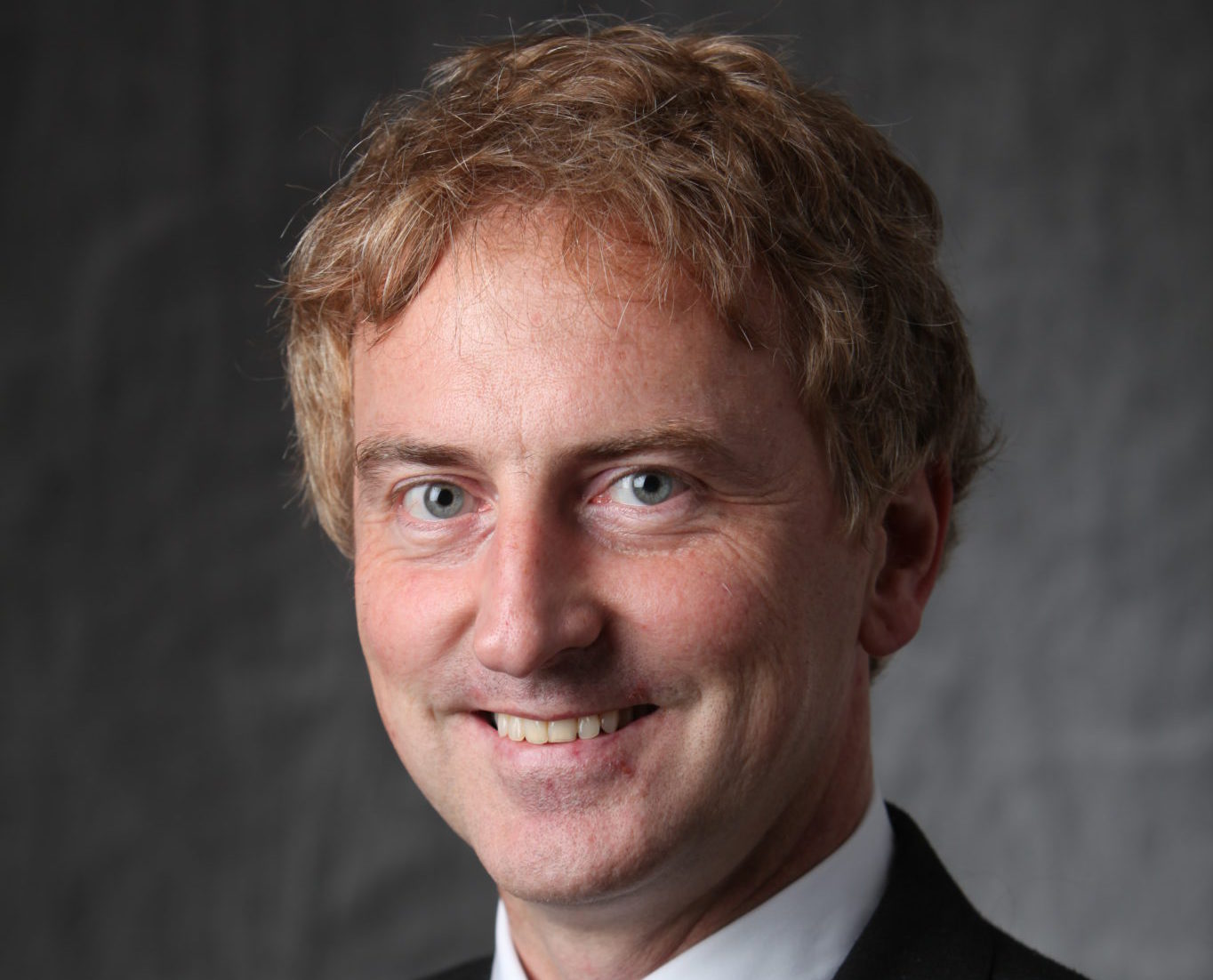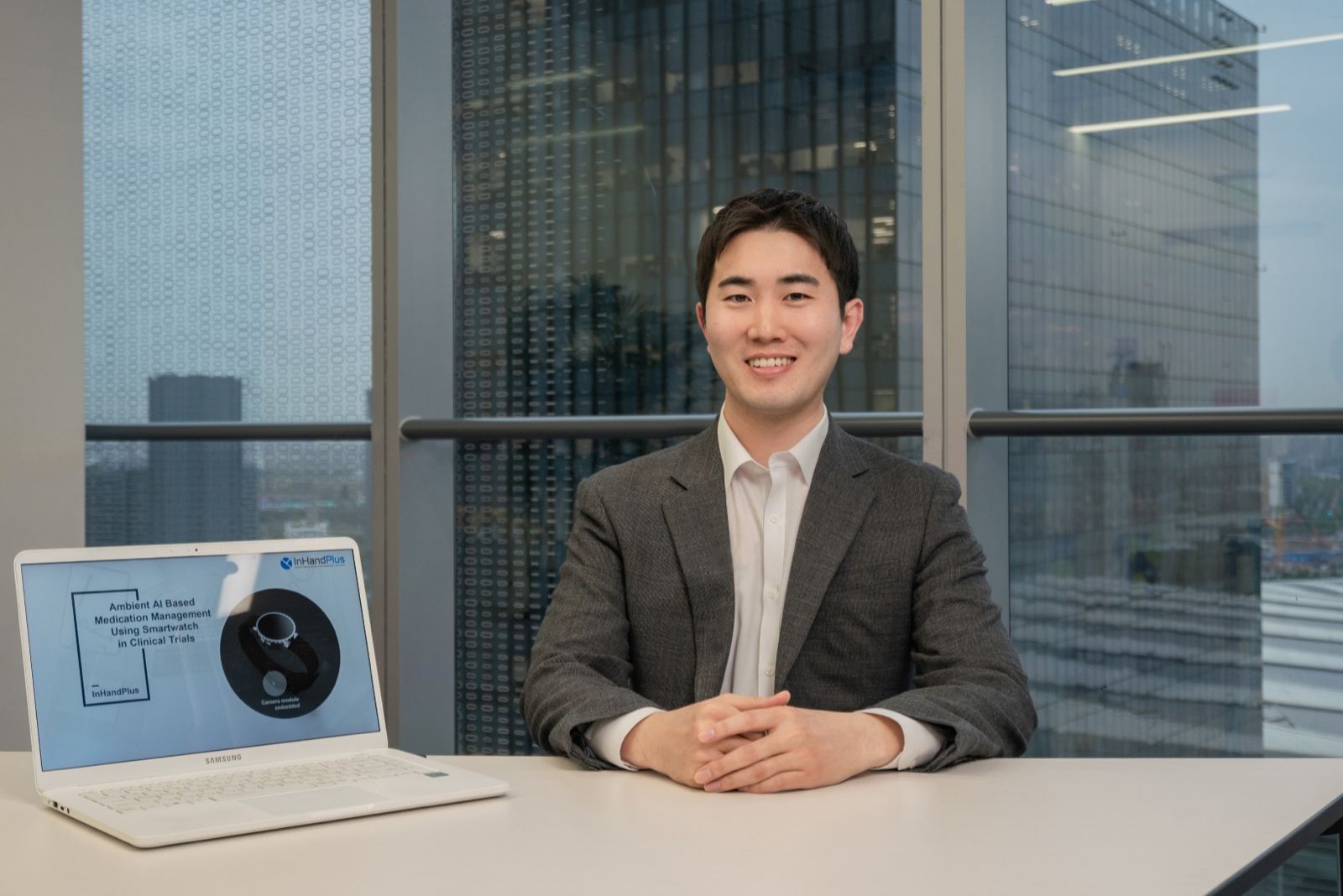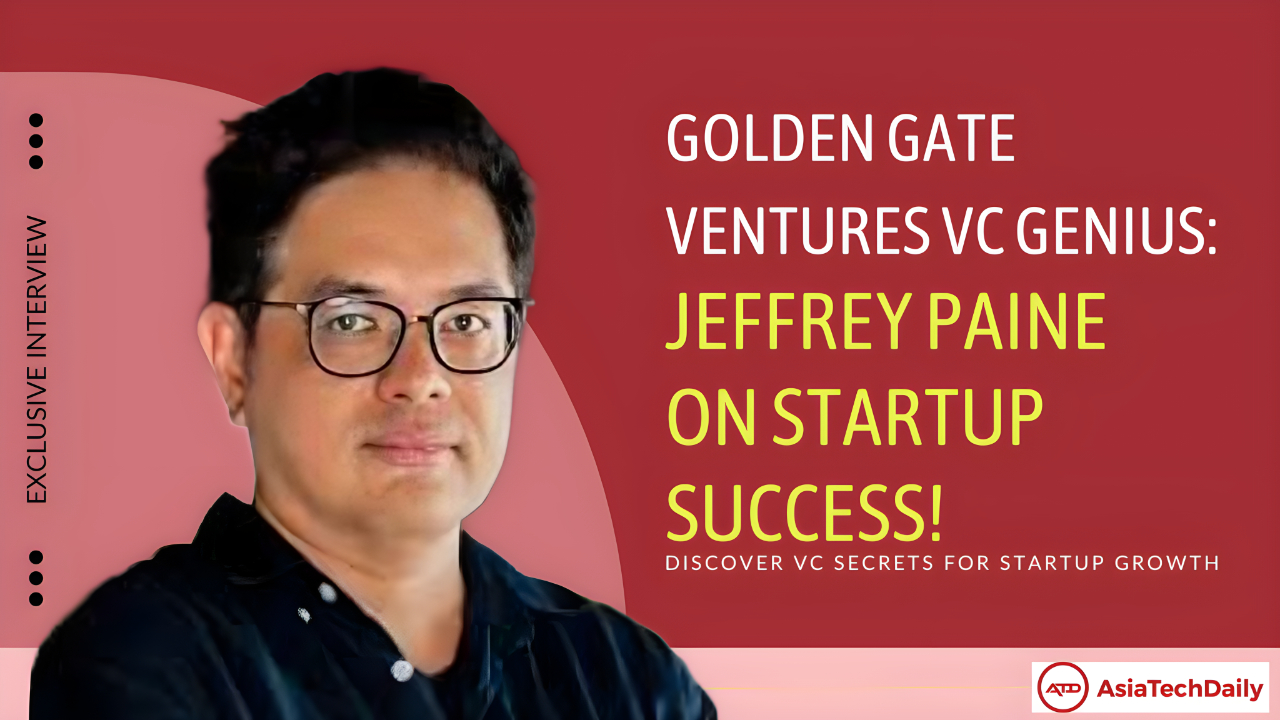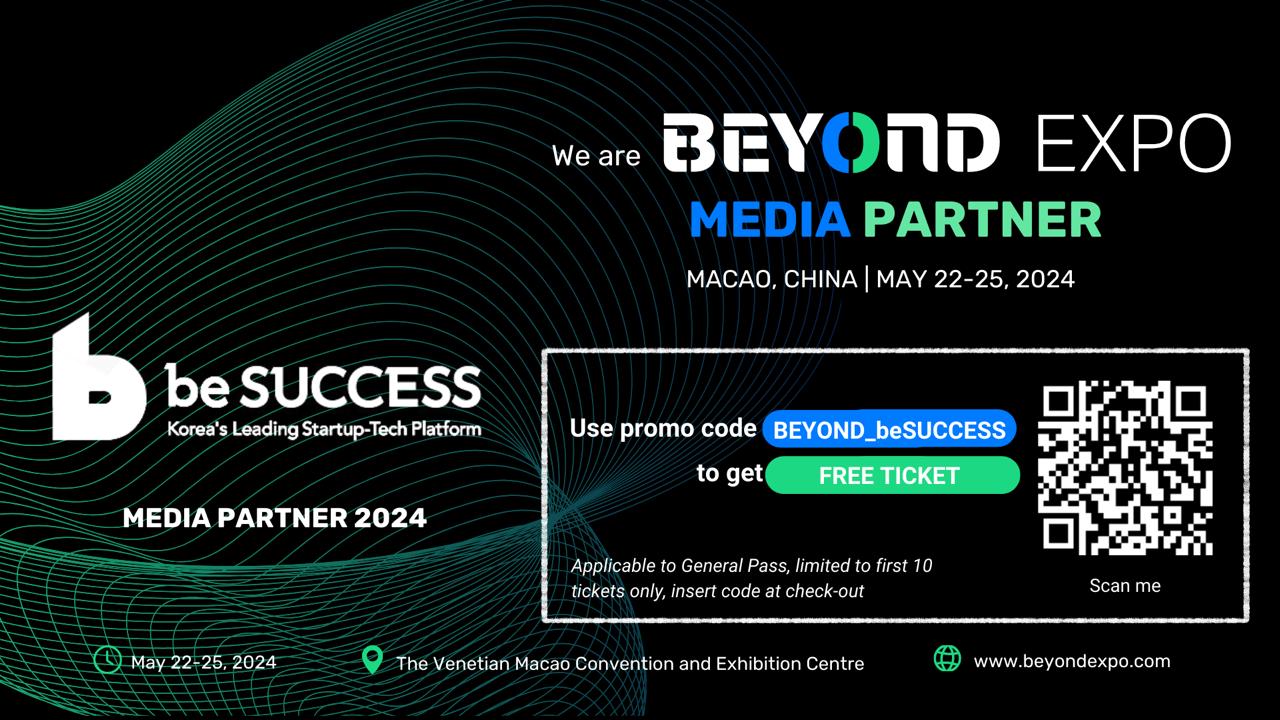AsiaTechDaily – Asia's Leading Tech and Startup Media Platform

Sean O’Sullivan, Founder And Managing Partner Of SOSV – A Global Venture Capital Firm With 1000+ Portfolio Companies And $800M+ Assets Under Management
Sean O’Sullivan is the founder and managing partner of SOSV, one of the world’s top-performing venture capital firms. SOSV has invested in more than 800 startups, and SOSV accelerators help create over $2 billion in new market capitalization every year. Sean began his entrepreneurial journey as president and founder of MapInfo, bringing street mapping technology to personal computers.
MapInfo went on to become a public company with over 1,000 employees. Along with George Favaloro from Compaq, Sean is credited with coining the term “cloud computing” in 1996. He founded and ran the humanitarian organization JumpStart International, managing up to 3,500 people in Iraq after the 2003 war. An advocate of STEM education, the O’Sullivan Foundation has funded organizations such as the Khan Academy, CoderDojo, and Rensselaer Polytechnic Institute. Sean graduated from Rensselaer Polytechnic Institute with a degree in electrical engineering and the University of Southern California with a Masters of Fine Arts degree in film production.
In an exclusive interview with AsiaTechDaily, Sean says:
Despite the increasing bifurcation of the software and hardware markets (China vs. non-China), all venture-backable companies are competing globally these days. International expansion differs by sales channel and marketing channels. I’d advise that people go after the biggest geographic markets possible so that they don’t end up doing really custom solutions, which often happens when people are thinking locally, in the case of small internal markets like Ireland or Israel.
I’d like to be integral to the creation of at least 10 new industries and at least 10 fortune 500 companies. I’d like those companies to be relentless about improving human health, planetary health and abundantly providing increased quality of life for every person on the planet. I’d also like it if my kids thought I was a good dad.
Read on to know more about Sean O’Sullivan and his journey.
What background and domain expertise do you have?
Sean O’Sullivan: I started as an electrical engineer and software developer. I started MapInfo (the startup that invented street mapping for computers) when I graduated from university in 1985, and it went public on NASDAQ in 1994. I also started many other companies and organizations (8 that became multinational or multi-million dollar organizations). I am credited with co-creating the term “cloud computing” from a startup I created in 1995. I started SOSV in 1995 after my first company had gone public, to invest capital in other people’s startups. In 2015, as we continued to grow, we began to manage other people’s money. Until 2006, SOSV was just me. Now we are a global investment firm with over 110 staff, investing in over 150 startups a year, with offices in Shanghai, Shenzhen, Hong Kong, Singapore, Tokyo, Xi’an, London, New York, San Francisco, and Princeton, New Jersey, where I live.
SOSV popularized “vertical accelerators” and the idea of running an accelerator and investing heavily into the companies that come through our accelerators. Before SOSV came to China in 2009, accelerators were primarily focused on software (and still, to this day, that’s mostly the case). We started Chinaccelerator (the first software accelerator in China) but quickly realized how useless it was to have hardware companies go through a software accelerator. So we started the hardware accelerator HAX in 2012, our IndieBio family of life science accelerators in 2014, and we haven’t looked back since.
When did you first think about starting a fund?
Sean O’Sullivan: At first, I was investing my own money. In 2013, I was living in Ireland, and the Irish government came to me and asked me to invest in Irish companies (which I was doing anyway, but they gave us some more money to do that). Once we set up a small fund to do that and got that running, generating quarterly reports and investment memos and such, we figured we might as well manage other people’s money. We raised SOSV III ($150m Fund) in 2015 and SOSV IV ($277m Fund) in 2019 in order to keep scaling our accelerator model, which has generated enormous traction. The 1,000 startups we’ve backed are worth in aggregate over $12B and have attracted about $3B of investment capital into them from other VCs, on top of SOSV’s investment.
What kind of startups/ sectors have you invested in till now?
Sean O’Sullivan: At the accelerator stage, SOSV is the global leader in hardware and life science startups. We are also a very active investor in cross-border software and e-commerce startups, mostly through our Chinaccelerator and MOX startups. And we pioneered the world’s first and still most active food accelerator (Food-X). When you add up all the follow-on seed and Series A rounds we invest in, into the same startups that go through our accelerators, we end up being a very active investor, even though we do not lead rounds other than at the accelerator stage, when we are generally the first professional investor into a startup.
The most recent quarter’s data, Q2 2020, indicates that SOSV was the #2 most active investor in the US, the #2 most active investor in Asia, and the #4 most active investor in Europe’s seed and later funding. Add it all up, and we were ranked #1 most active investor in the world in Q2 2020. I wouldn’t think we’ll duplicate that feat for many quarters as we advance, but it was cool to do it once. In terms of the areas, we target in particular? The startups we invest in are trying to solve some of the world’s biggest challenges. In particular, IndieBio and HAX are very strong investors in human health and planetary health. That can be medical devices, therapeutics, and/or cures for various forms of cancer or auto-immune conditions, as well as ways to prevent global warming and create more sustainable agriculture. And yes, we also back IoT, connected devices, consumer electronics, and agtech startups. In Chinaccelerator and MOX, we look to back mobile-first applications for “the and five billion,” including e-commerce and fintech platforms. And in Food-X, we back everything from consumer packaged goods (CPG) to ingredients, from new distribution technologies to methods for ensuring reduced waste in the food supply chain.
What types of companies do you look to invest in? And What’s your mental model for investing?
Sean O’Sullivan: It mainly boils down to four items: Team, strategy, Product, and customers.
Team
With the team, we’re looking for a founding team, not a singular founder. And the team absolutely MUST include technical co-founders (see my Medium article for more on this). The team must have proof that it can be built something from nothing, and the team must have shown, even if they’ve never had commercial success previously, that they have exceptional talent and have done remarkable things in their history. This could simply be showing a working prototype that is unlike anything previously accomplished in human history.
Strategy
There must be a business model that works or a good way of getting to that. This “market entry” strategy, where customers will want to pay for a product that works, will allow a startup to succeed where large market incumbents cannot. If the Product is a feature that has a feasible way of creating a market, that’s interesting. If the Product is a feature that can easily be embedded into the next release of some entrenched player that has all the routes to market tied up, it’s game over before it’s begun. Our teams can help the startup devise the best market entry strategies and assist in making introductions to industry gatekeepers, but we’ve got to see that there is a “there” there.
Product
Maybe we should have started with the Product because without this; you have nothing. We expect to see working prototypes, even if it’s held together with rubber bands and glue (figuratively). For scientific breakthroughs, it doesn’t have to necessarily work in vivo (in a living animal or human) if it works in vitro (in a petri dish). Still, we have to believe the science can be sufficiently derisked in the program’s duration to give confidence to the syndicate of investors that will come to SOSV events and virtual and physical demo days. We want to be awed, and we want to be blown away by the executional technical and UX capabilities of the founding team. Make us believers, and we will help preach your gospel to the world.
Customer Traction
Most startups in our life sciences and hardware accelerators don’t come to us with revenues or orders. But at a minimum, they must have deep insights into the industry and the application of the technology via contact with real-life prospective customers. It’s even better if startups have revenues or letters of intent (LOI’s), but they are often gotten during the program.
What is your typical investment range and how many startups you invest in per year in general? Additionally, can overseas headquartered startups get funding from you?
Sean O’Sullivan: Our initial investment is ~$150k USD for software or food startups, or $250k for hardware and life science startups. We invest globally. We’ve backed founders from over 100 countries, with headquarters operations in ~53 countries.
What would be the KPI that you usually check about the startups’ growth?
Sean O’Sullivan: It may be diverse in each industry, $150k CAC, MoM, etc., but it will be helpful to understand more about your additional investment factors. In e-commerce, MoM growth in MAU, as well as the progression of LTV, CAC. In software, MoM growth in DAU and time spent in the platform, and the “n” or viral co-efficient. But ultimately, all businesses revert to MoM or quarterly growth in revenues, the breakeven point, and the runway.
How do you handle this COVID-19 outbreak situation for your Fund’s survival in the future?
Sean O’Sullivan: Over 40 of the startups we’ve invested in are active in the fight against COVID-19. While it’s been a challenging time, we’ve seen some startups go from nothing in sales to >$5M in revenue in the last several months. One company went from $10m in revenue to over $200m while simultaneously providing desperately needed testing services to a wide audience. As SOSV is very active in life sciences, we’ve benefited from the increased funding that’s flooded in this year (up 28% over last year’s record pace, at the same time that all other early-stage sectors had declined). Of course, we worry and grieve about the long-term economic impact of the millions of businesses that have closed and the threat that it has to a post-COVID world.
Right after being an investor, like in the early days, there must be some tough times in building up the first Fund along with building up a second fund or giving back the good returns to those LPs. If there is any similar tough time like this, please tell us more about it and how you (or your team) overcome the difficult times?
Sean O’Sullivan: This is a long term business, and those that think that the returns are quick and sure should stay in the stock market, where liquidity is easy. We’ve seen companies in our portfolio go from $500m in valuation to zero. We’ve seen companies go from $3m valuations to $6B. Nothing is real until it is realized. Raising funds is super hard because LPs need to be working with you for years to come to trust you. So stick with the basics. Check out for the companies that are growing, generating profits, delivering happy customers. Wash, rinse, repeat. These are companies that can control their own destinies and survive any downturns. And if you build a portfolio of solid companies, you’ll get there eventually. Just like the startups you invest in, your Fund should not overextend! One year at a time.
Additionally, Do you have advice for anyone looking to start a fund?
Sean O’Sullivan: First, build at least one multi-million-dollar revenue, profitable company. Second, build a company that ends up failing and dying. Then, you are prepared to come with some humility to the board table and give first-hand advice that will be of use to the first or second-time CEO that relies on you to help light the path.
What mistakes do you see founders make when raising money?
Sean O’Sullivan:
- Raising party rounds, where there is no investor that has enough money and stake in the company to make helping the company a top priority
- Trying to sell unreasonably small stakes in the company. If you don’t have a profitable company, you should look to raise enough capital to last 18 months, and you should be prepared to give up about 15% of the company for every year of a runway that gets invested
- Trying to raise money that will last an unreasonably short time to derisk the company
What’s your advice to entrepreneurs who have a chance to meet investors like you? What are the top 3 questions that you always ask the founders?
Sean O’Sullivan:
- As above, tell me about the Product, the need (market), and the traction. And tell me why you are motivated to solve this particular problem
- If it’s just 20-30 seconds you’ve got (elevator pitch), make me curious about what’s unique about your perspective
What’s your general thought about the term “Global,” and What are the important factors (criteria) for local startups to consider for international expansion?
Sean O’Sullivan: Despite the increasing bifurcation of the software and hardware markets (China vs. non-China), all venture-backable companies are competing globally these days. International expansion differs by sales channel and marketing channels. I’d advise that people go after the biggest geographic markets possible so that they don’t end up doing really custom solutions, which often happens when people are thinking locally, in the case of small internal markets like Ireland or Israel.
What kind of startup or tech industry will impact the world in the future, like 2-3 years locally in your view?
Sean O’Sullivan: I’ll answer it as if “locally” isn’t there.
I think cellular agriculture and protein farming startups are primed for the massive explosion in value creation over the next 3+ years.
That said, many people still won’t know what those terms mean in 3 years, so I’d say you’ll start to see many more purpose-specific connected devices that will improve the health of people and productivity of manufacturing businesses.
What are the top-three books or movies (TV series) that changed your life and why?
Sean O’Sullivan: Rather than that, I’m going to give you three books that would really save me a lot of time if entrepreneurs read them before trying to talk to me: ○ Made to Stick, by Chip and Dan Health ○ How to Win Friends and Influence People, by Dale Carnegie ○ Measure What Matters, by John Doerr.
The first book is a great marketing and differentiation book. The second, despite the cheesy title and fact it was written in 1936, really does bring to light that the best way to get along with people is to be interested in them and, to some extent, being of service to others. The third is more of a workbook than a real book. Still, it covers the essentials of a good management system that keeps everyone focussed on the timely management of the top priorities to keep an organization clear and focussed. For first time managers, I’d also add a fourth: “The One Minute Manager,” which is about an hour read but a straightforward and simplistic, and useful framework in working with the people who report to you respectfully and concisely.
How do you keep yourself motivated every day?
Sean O’Sullivan: Work with people on projects and startups that matter and will leave the world a better place.
What are the top three life lessons that you want your (future) sons and daughters to know?
Sean O’Sullivan: Be of service to others while being confident and humble in yourself.
What would you like to be remembered for?
Sean O’Sullivan: I’d like to be integral to the creation of at least 10 new industries and at least 10 fortune 500 companies. I’d like those companies to be relentless about improving human health, planetary health and abundantly providing increased quality of life for every person on the planet.
I’d also like it if my kids thought I was a good dad.
You can follow Sean O’Sullivan here.
Are you looking to secure investment for your startup or a keen startup enthusiast, keep an eye on our interview section.
Follow Asia Tech Daily to know about the innovative startups and how they are revolutionizing the ecosystem.





